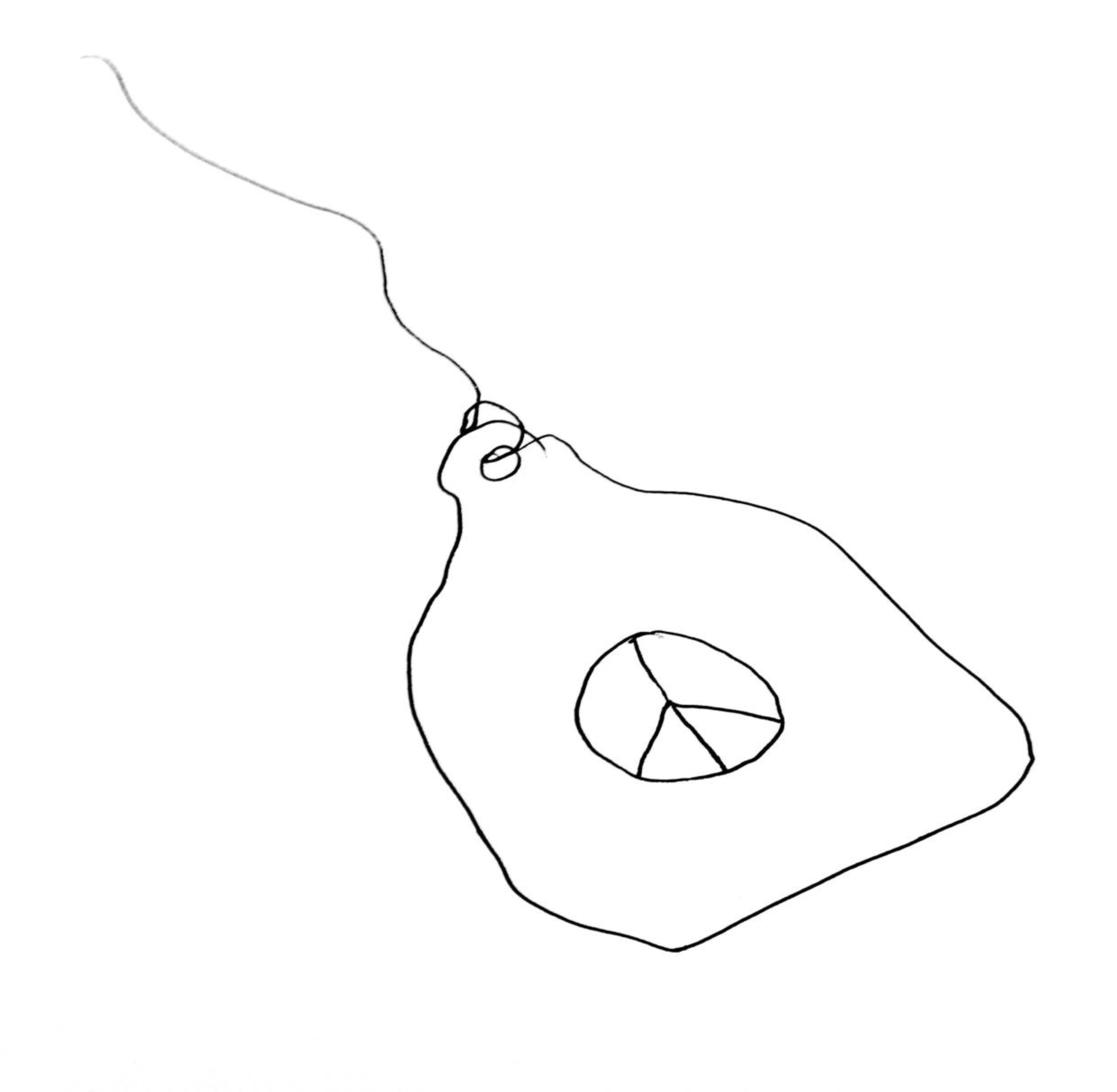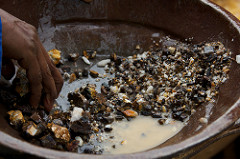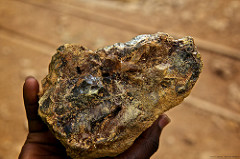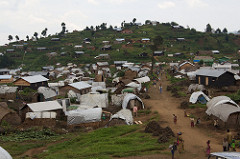 As you embark on Black Friday and holiday shopping, the Enough Project hopes that you consider companies’ sourcing practices when you make your purchasing decisions on electronics and other items, and continue to tell companies that you want to be able to buy conflict-free products made with minerals from the Democratic Republic of Congo.
As you embark on Black Friday and holiday shopping, the Enough Project hopes that you consider companies’ sourcing practices when you make your purchasing decisions on electronics and other items, and continue to tell companies that you want to be able to buy conflict-free products made with minerals from the Democratic Republic of Congo.
- Georges Nzabanita Iyamuremye: “While there are many challenges facing Congo, conflict minerals are one which the U.S. can significantly impact.”
- Why Conflict-Free
- Support from the Private Sector
- Voices from the Student Movement
- A Regional Problem Requires a Regional Solution
“While there are many challenges facing Congo, conflict minerals are one which the U.S. can significantly impact.”
By Georges Nzabanita Iyamuremye
My name is Georges Nzabanita Iyamuremye and I am from Congo. I was born, grew up and studied in Rutshuru in the North Kivu province and I went to college in Nairobi, Kenya and Kentucky, USA. Since 1996, I have been surrounded by rebel armies and local militias all violently competing for power in the midst of a crowded civilian population with no infrastructure. In 1996, I lost two cousins who were killed by rebels fronted by the late president Laurent Kabila. In addition, my younger sister and her friends were victims of a mass rape by the Democratic Forces for the Liberation of Rwanda or FDLR, in my village. My family was forced to leave in fear of torture, rape, looting and killings in our neighborhoods by the FDLR together with the local militia. My family and many of our fellow villagers are still living as internally displaced persons, or IDPs, in Congo.
The conflicts in eastern Congo have been mostly fueled by natural resources which rebel groups smuggle through neighboring countries such as Rwanda and Uganda. Rebels in eastern Congo have no plan to change the regime of Kinshasa which is characterized by corruption in private and public sectors, but rather they are more interested in plundering Congo’s natural resources for their own gain. I understand that I must do something to advocate for peace by uniting my experiences and knowledge with organizations which believe in human rights.
During my studies in the U.S., I was the campus leader of the Conflict-Free Campus Initiative at Georgetown College. I have now returned to my home in Congo, where I am the Headmaster of a school and the founder Peacebuilding Initiatives for a Sustainable Development in Eastern Congo (PISDEC) which is focused on reconciliation and peacebuilding through a communal reflection on the root causes of the cycle of violence we have experienced for almost two decades. While there are many challenges facing Congo, conflict minerals are one which the U.S. can significantly impact. I am grateful for the reforms that have been made so far, and I urge the United States congress, companies, and consumers to continue to work to create a conflict-free minerals trade in Congo and the region. By combining the local, national, regional, and international effort for peace, we can prevent the social and environmental crises caused by war, and make Congo and the world a safer place to live for every person.
By Amanda Schmitt
Congo has experienced over two decades of armed conflict and violent corruption, claiming over 5.4 million lives, displacing over 2 million people, and resulting in unspeakable levels of sexual violence and trauma. The scale of devastation has made this conflict the world’s deadliest since World War II.
The system of impunity for human rights abuses precludes many victims from receiving justice, as the justice systems in Congo are severely undermined by corruption. Armed groups and Congo’s army contribute to a failing system for the Congolese people, as they exact horrific human rights abuses against the population and manipulate the minerals trade for their own profit. Income from the minerals trade has contributed hundreds of millions of dollars to armed groups and army commanders, enabling them to sustain their violent operations and contributing to a system of poor governance.
One avenue of positive impact for concerned citizens globally is getting companies to be much more transparent about how they source minerals from conflict zones. Section 1502 of the Dodd-Frank Wall Street Reform and Consumer Protection Act was signed into law in the United States in 2010, and the Securities and Exchange Commission began regulating it in 2012. The law requires companies to publicly report on where they are sourcing minerals from and whether they are getting them from conflict mines in Congo or the region.
 For products ranging from cell- or smart-phones to cars to jewelry, one of the main aims of Dodd-Frank 1502 is to give consumers and investors a resource for determining companies’ traceability efforts, and to subsequently incentivize companies to source conflict-free minerals from Congo to match customer demand. By promoting corporate social responsibility and sourcing from conflict-free mines, companies can contribute to positive economic growth in Congo while also limiting funding available for armed groups.
For products ranging from cell- or smart-phones to cars to jewelry, one of the main aims of Dodd-Frank 1502 is to give consumers and investors a resource for determining companies’ traceability efforts, and to subsequently incentivize companies to source conflict-free minerals from Congo to match customer demand. By promoting corporate social responsibility and sourcing from conflict-free mines, companies can contribute to positive economic growth in Congo while also limiting funding available for armed groups.
It has helped lead to 70 percent of tin, tantalum, and tungsten mines surveyed in Congo to be free of armed groups and Congo’s army, a major marker of progress. However, companies and governments still need to do much more to help Congolese miners of these minerals through livelihood programs, alternative minerals bag-and-tag systems, and reforms to the gold sector. There is also much more to be done to pressure the Congolese government to change the overall system of violent corruption and hold national presidential elections on time.
Support from the Private Sector
By Annie Callaway
Conflict-free sourcing is made possible by tracing, auditing, and certification – reforms that Dodd-Frank 1502 has spurred significantly. While some companies consider this an inconvenience or an undue burden, others embrace it as an opportunity not just to do what’s right but also to fortify their businesses.
“It's actually quite simple,” says Per-Olof Loof, Chief Executive Officer for the major electronics supplier Kemet. “It's essential for us to be conflict-free, otherwise we would not be able to provide our customers with our products. And the true benefit for us is, of course, that we can secure and ensure the stability of our supply chain.” Furthermore, in recent testimony before the U.S. House of Representatives Financial Services Subcommittee on Monetary Policy and Trade, Mr. Loof recalled how the conflict minerals legislation spurred him to action: “When the Dodd-Frank Act passed, I sensed a business opportunity. Section 1502 could be the impetus for developing, in [Congo], an innovative and socially sustainable source for conflict-free tantalum ore.”
It’s not just individual customers who care about where their products come from; investors are also increasingly concerned. A letter submitted to the U.S. Congress by the Responsible Sourcing Network, reflects this growing awareness in the investor community:
Although we know that the transformation to a peaceful and prosperous mining industry in the [Congo] region has been slow and challenging, having companies disclose information on their sourcing practices has provided investors with important transparency about this human rights risk. We believe that continued engagement and reporting on corporate activities on this issue are vital for improvement on the ground.
Kemet, as well as rival tech supplier AVX, have gone beyond reporting requirements to set up programs to source conflict-free minerals from Congo. AVX has sourced conflict-free tantalum from North Kivu, and Kemet set up a closed-pipe tantalum supply in while also providing livelihood and other support to the the mining community.
Other leading companies like Intel have taken similar steps to ensure their products are supporting peaceful economies in Congo. In its Supplier Responsibility 2015 Progress Report, Apple observed, "The simplest path to calling Apple products conflict-free would be to redirect our demand through a small subset of smelters that are either conflict-free verified, or aren’t sourcing from Central Africa. But this approach would do little to influence the situation on the ground, something we care deeply about. That’s why we have been working to expand the number of verified sources in this region, so that more people can earn a good living, in better conditions."
Companies leading the way on conflict-free mineral sourcing lay the groundwork for more diligence across industries, which in turn bolsters global supply chain transparency. Jean-Paul Meutcheho, Director of Corporate Sustainability and Conflict Minerals at Global Advanced Metals believes the a standardized process for addressing conflict minerals is imperative, noting:
“With the help of Section 1502 of the Dodd Frank actually making it a requirement, it has gone way beyond just some company benevolence and it’s now a legal requirement coupled with the need to do the right thing by all business actors involved in the process.”
There is still a long way to go in ending the conflict minerals trade. Companies and governments must play a bigger role in helping Congolese miners by supporting livelihood programs. Additionally, they should boost alternative minerals bag-and-tag systems that can help Congo’s miners, and reform the gold sector. However, committing to responsible, conflict-free sourcing is important and goes beyond a moral obligation. It addresses the growing consumer and investor demand for responsibly-sourced minerals from Congo while helping strengthen due diligence practices for a more stable mineral sourcing environment overall.
Voices from the Student Movement
By Ellen Bresnick, Middleton High School, Middleton WI
As Thanksgiving quickly approaches, family, friends and food become of the utmost importance. Of course, associated with these festivities is Black Friday shopping. It is easy to get lost amidst all of the deal searching and spending. But it is necessary to avoid losing sight of what ideals are actually being promulgated. Specifically, conflict minerals are prevalent within consumer electronic devices and other products. These minerals, tungsten, tin, tantalum and gold ore are found primarily in Congo. They serve as a lucrative source of monetary resources for armed groups, which has exacerbated the sustained conflict in Congo, leading to over 5.4 million deaths.
Consumers are in an exceedingly powerful position. Where spending is allocated dictates what ideals are important. By purchasing from consumer electronic companies that have taken action against conflict minerals within their supply chains, consumers apply financial pressure on companies that haven’t performed adequate due diligence. So, when you head home for the holidays and get ready to wake up early in the morning to visit your favorite store, remember, money has a voice, and you can choose where to direct it.
This consumer power is a key reason why I initially wanted to become involved with the Conflict-Free Campus Initiative. Currently, I am a junior in high school. When I learn about conflict on an international scale, I am often told the most impactful way to help is to be educated about the topic. While education is obviously critical, I believe it is only the first step. I want to help educate the general public, as well as translate that acquired knowledge into action. As a Campus Organizer, I am striving to help facilitate a student network dedicated to advocating for a conflict-free market by promoting civic engagement. By doing so, not only will there be an increased demand for conflict-free products, but also it will help to alleviate violence transpiring in Congo.
By Danny Cheng, University of Central Florida, Orlando FL
“Just ignore everything they say and only pay attention to what they do,” is a quote by Randy Pausch in his Last Lecture. He is essentially stating his own permutation of the proverbial saying, “Actions speak louder than words.” His quote is very relevant in the conflict mineral context: your actions matter more than what you say. How you invest your money after knowing what it could be indirectly funding is a reflection of your true core values.
I am currently an undergraduate student at the University of Central Florida, and I hope to make a tangible difference here before I graduate. The fact that minor conveniences to us can be funding atrocities on another side of the world is a startling realization. After I became aware of how prevalent conflict minerals are in so many of the appliances that I use daily, I wanted to make a difference, a positive impact on a larger scale. That is why this year I became a Campus Organizer for the Conflict-Free Campus Initiative, whose main goal is to eventually support peace in Congo and ensure that electronics companies use conflict-free minerals.
The way that you and I can make a difference is by being more thoughtful about our purchases and investing more in companies that are attempting to go “conflict-free.” For large corporations, their bottom lines are almost always just money. If enough consumers start investing more into conflict-free products and companies, then the companies will notice and be forced to make a change. Black Friday is a day that many look forward to. I am definitely going to be more thoughtful about my purchases, and about the companies which I am choosing to support. When enough people do this consistently, then that is when these conglomerations take notice and start going conflict-free. The final result being first stopping the threatening exploitation occurring in Congo, then the end of conflict minerals entirely, which would be a major step towards supporting peace in Congo.
By Jane Dimnwaobi, Boston University, Boston MA
 On Black Friday, as masses of buyers flock to their electronic supplier of choice, they may not know their potential to affect the conflict mineral trade in Congo. The dollars they hold in their hands can contribute to decreasing the number of American companies engaging in mineral trading in eastern Congo. The awareness and compassion of consumers across the nation is powerful, especially on a large scale spending holiday such as Black Friday.
On Black Friday, as masses of buyers flock to their electronic supplier of choice, they may not know their potential to affect the conflict mineral trade in Congo. The dollars they hold in their hands can contribute to decreasing the number of American companies engaging in mineral trading in eastern Congo. The awareness and compassion of consumers across the nation is powerful, especially on a large scale spending holiday such as Black Friday.
Tin, tantalum, tungsten, and gold are four minerals essential to the manufacturing of a majority of electronic devices, from televisions to radios, cell phones to laptops, and many more. Apple, HP, Nokia, Microsoft, Canon, Sony, and plenty of other electronics and technology companies undoubtedly purchase and manufacture these minerals of using these minerals. Many have made positive advancements in reforming their sourcing policies so as not to augment the power of the armed groups that supply the minerals.
When purchasing electronics this Black Friday, consumers should focus on those that are making a genuine effort to move away from engaging in the conflict mineral trade in Eastern Congo. Since the Dodd-Frank Act– and with it Section 1502 on conflict minerals– passed in 2010, the conflict-free movement has steadily gained momentum, from students bringing the Conflict-Free Campus Initiative to campuses worldwide, to legislators continuously pushing to secure the accountability the Section’s mandate impresses upon technology companies, and Congolese activists remaining intensely focused on community building and preservation of civilians’ livelihood.
By Kayla Finstein, Southern Methodist University, Dallas TX
With the end of the year almost upon us, most people will be preparing their wish lists, shopping schedules, and wallets to give and receive gifts in the spirit of the holiday season. One of the biggest shopping days of the year, Black Friday, immediately follows our Thanksgiving celebration of gratitude and appreciation.
This year, I’m grateful, as always, for my health, my loved ones, and my education, amongst other things. But I also know what else I’m grateful for: in the midst of a world that can seem dark, helpless, and terrifying, the fact that there are those still dedicated to creating and maintaining peace in Congo and who work to push corporations, universities, and cities to go conflict-free provides a light in the darkness of violence and human rights atrocities.
Our electronic devices, whose sales will surely skyrocket in the next month as flashy new products hit the shelves as quickly as they leave them, are symbols of all that still needs to be done to support peace and prosperity for the Congolese mining sector; namely, upholding Dodd-Frank 1502, maintaining supply chain audits, and harnessing the power of the global electronics demand. This Thanksgiving, we should all be giving thanks for all those fighting the legal, political, and moral fight to end unethical corporate practices, particularly when it comes to conflict minerals.
As we exchange gifts this holiday season, take a moment to reflect on how we are individually affected by conflict mineral issues. We all have the ability to create positive change through our collective buying power. It’s time to make it happen.
A Regional Problem Requires a Regional Solution
By Amanda Schmitt
 Aiming to help promote peace in Congo, Section 1502 of the Dodd-Frank Wall Street Reform and Consumer Protection Act addresses the conflict minerals trade with a regional approach, incorporating Congo and its nine bordering countries in the legislation. While not all countries in the region have been or are currently plagued by armed conflict, extreme violence in eastern Congo continues and is sustained in many ways by elements beyond its borders. Furthermore, Congo’s neighbors have frequently intervened in Congo and extracted natural resources illegally through proxy armed groups and continue to smuggle minerals albeit in smaller amounts. Because of this violence and lawlessness in the mining sector is a region-wide threat, necessitating a regional strategy to ensure the program’s viability and sustainability.
Aiming to help promote peace in Congo, Section 1502 of the Dodd-Frank Wall Street Reform and Consumer Protection Act addresses the conflict minerals trade with a regional approach, incorporating Congo and its nine bordering countries in the legislation. While not all countries in the region have been or are currently plagued by armed conflict, extreme violence in eastern Congo continues and is sustained in many ways by elements beyond its borders. Furthermore, Congo’s neighbors have frequently intervened in Congo and extracted natural resources illegally through proxy armed groups and continue to smuggle minerals albeit in smaller amounts. Because of this violence and lawlessness in the mining sector is a region-wide threat, necessitating a regional strategy to ensure the program’s viability and sustainability.
As one example of the need for regional inclusion in the 1502 process, conflict gold has historically been smuggled through Uganda and Burundi, largely en route to Dubai and onward. By requiring supply chain due diligence reporting, 1502 encourages companies to uncover information that can help facilitate responsibly sourcing their gold to avoid these illicit channels.
In addition to gold traveling through Uganda and Burundi, the smuggling of 3T (tin, tantalum, and tungsten) minerals across Congo’s border into Rwanda was a very widespread phenomenon for many years, and according to the UN Group of Experts, this practice continues in smaller amounts today. Since the genocide in 1994, there is no longer armed conflict inside Rwanda, although governance concerns remain regarding democracy, freedom of expression, and the president’s push to continue to stay in power. The Rwandan government has also implemented new systems for increased minerals traceability, which have been important steps in the right direction, and investment in Rwanda’s internal mining sector has increased significantly. These steps have helped wean Rwanda off of Congo’s conflict minerals trade to a large extent.
However, the October 2015 UN Group of Experts report reported, “3T minerals continue to be smuggled from the eastern Democratic Republic of the Congo across the border to Rwanda, [which] is consistent with the Group’s findings in previous reports over the past few years.” The report also discussed issues with the iTSCi tagging system, stating, “Mineral tracing tags conceived to ensure the traceability of minerals continue to be sold on the black market in Rwanda.” The January 22, 2014 UN Group of Experts report recommended that “companies conduct due diligence in minerals purchase in the Great Lakes region, in addition to investing in traceability schemes.” Thus, while Rwanda is free of active armed conflict, the ongoing smuggling of conflict minerals from Congo into Rwanda provides funding to army officers in Congo, making it critical that Rwanda remain part of 1502 and the regional ICGLR minerals certification schemes aimed at developing more sustainable, transparent mining sectors.
Section 1502 was only first implemented in 2012, and more time is needed to ensure the effectiveness and success of these responsible sourcing efforts. Regional economic and trade regulation cooperation will continue to have a significant impact on improving security in Congo and stability and prosperity in the region.
Photo credit: Sasha Lezhnev/Enough Project

